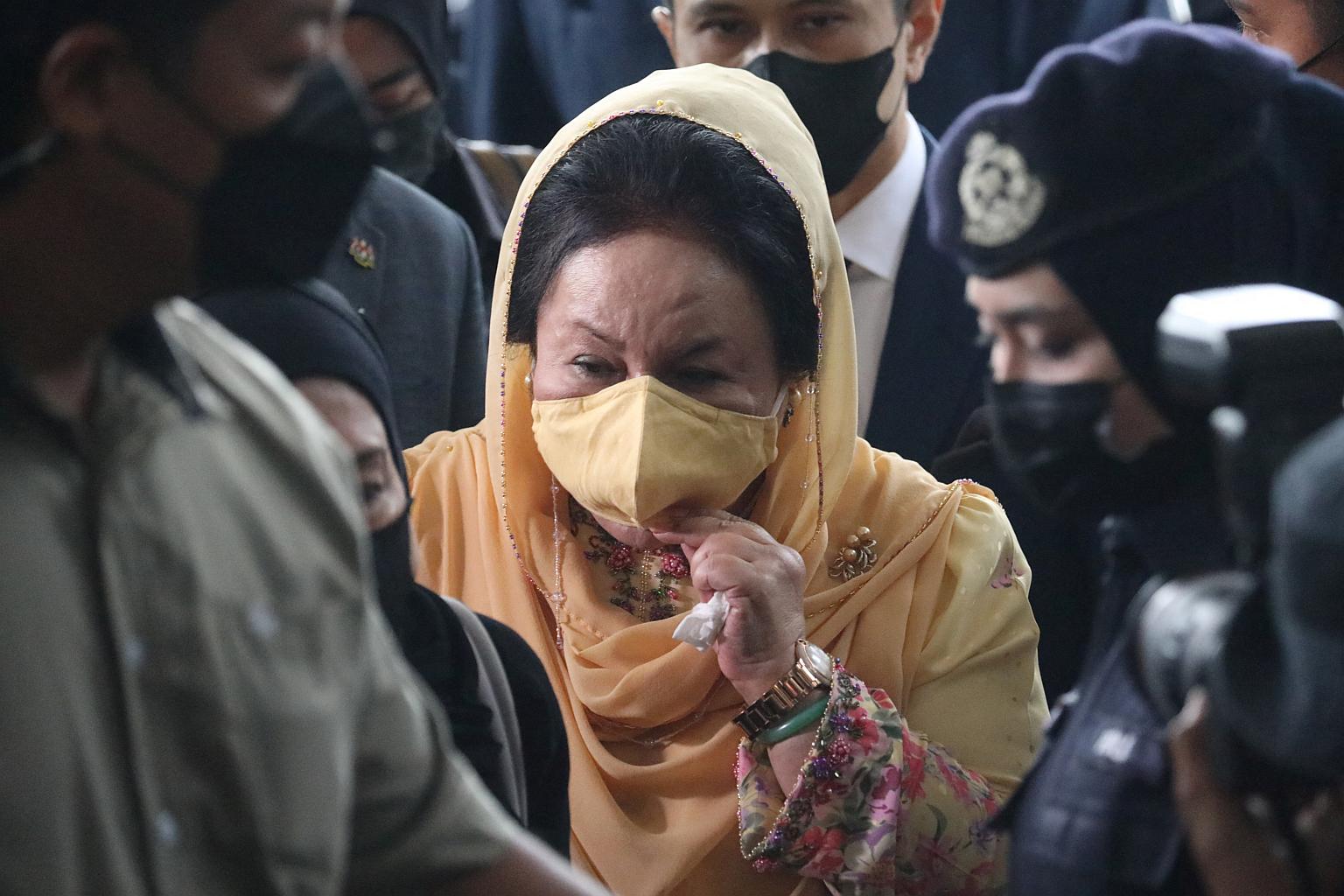Dear ST reader,
We hope you’ve been keeping well.
In our Asian Insider newsletter this week, Rosmah Mansor, the wife of former Malaysian prime minister Najib Razak, was convicted of corruption. Over in India, a bid by the country’s richest man to take over broadcaster NDTV sparks fears about the future of media freedom. Meanwhile climate change tops global threats in a Pew survey.
Rosmah Mansor guilty of graft

Rosmah Mansor, the wife of ex-Malaysian premier Najib Razak, was sentenced to 10 years' jail and fined RM970 million ($303 million) after the Kuala Lumpur High Court found her guilty of seeking and receiving bribes in exchange for government contracts.
This comes a week after her husband was sent to prison when Malaysia's highest court affirmed his corruption conviction.
Najib’s incarceration has fuelled Umno to push for the general election to be held as soon as possible. Already speculation is rife that the polls are near after the government decided to move up the tabling of Budget 2023 by three weeks to Oct 7.
Profile: From prime minister to prisoner
Read more: Finance Minister Zafrul's electoral debut a fresh face for Umno
In the news:
Mahathir in hospital after testing positive for Covid-19
Selected farms to resume exporting chicken from October
Most secondary school leavers don't plan to continue studying
Taiwan tensions

The flurry of military activity by China as a result of US House Speaker Nancy Pelosi’s visit to Taiwan needs close study because it has created a new reality. In his Speaking of Asia column, ST’s associate editor Ravi Velloor notes that Taiwan’s space to manoeuvre diplomatically has shrunk rather than expanded while the rest of Asia, including Japan and India, must now pick up the pieces.
Amid deteriorating US-China relations, there are worries that should Washington and Beijing come to blows over Taiwan, geography alone puts the Philippines in a highly vulnerable position, writes Raul Dancel in the latest Power Play column.
Read more: Taiwan's record-high defence budget shows resolve amid Chinese aggression
Podcast: Marcos set to pivot back to Washington
Extreme weather fallout

After its wheat output was affected by a heatwave, India is now grappling with reduced rice planting due to poor rainfall and a mysterious "dwarfing" disease affecting padis. Over in China, the extreme weather and drought in much of its south-west has led to a hydropower crunch, which is likely to result in a further drag on the economy.
More grim news ahead - researchers looking into the impact of climate change and extreme weather on food supply chains found that climatic events could affect surrounding areas by way of limiting food availability and employment, writes climate change editor David Fogarty.
Commentary: People want action on climate change as crisis grows
Read more:
Heatwave, drought in China have far-reaching implications
Global warming likely to boost wheat yields, but will also drive up price volatility
Loss and damage issues key for South-east Asia at COP27 talks
Climate change tops global threats in Pew survey
NDTV takeover saga

A proposed hostile takeover of Indian television company NDTV by billionaire Gautam Adani has sent ripples through the media industry, triggering worries about the future of media freedom in India, reports India correspondent Rohini Mohan.
Profile: The world's third richest man is also scrupulously private
In the news:
Ukraine war increases urgency for India to diversify arms purchases
Outrage in India over release of 11 convicted of gang rape
Tackling ageing holistically
How will an ageing global population change our world? What will the future look like if older people outnumber the younger ones? In the latest edition of Conversations on the Future, Dr Sarah Harper, professor of gerontology at the University of Oxford, shares her views with US bureau chief Nirmal Ghosh on falling childbearing and mortality rates, and why the key to adaptation is to stay healthy for as long as possible.
Watch: Tackling ageing holistically is important
ICYMI: Previous editions of Conversations on the Future
Job scams in South-east Asia

Scam syndicates are operating with impunity across South-east Asia, luring unsuspecting job seekers with promises of well-paying work in Myanmar and Cambodia. Upon arrival however, the victims are confined and forced to conduct cyber scams or extortion rackets. Some victims are sold to other syndicates and are compelled to pay huge ransoms to secure their freedom, writes Indochina bureau chief Tan Hui Yee.
Read more: 'I doubted I would remain alive': Job scam victim recalls ordeal
Race to space

Asia’s start-ups are racing to get a slice of the lucrative space industry, specifically to build, launch and maintain satellites, reports regional correspondent Jeffrey Hutton. But without firm international rules, including on how satellites are deployed or how they are to be disposed of, market watchers worry that some parts of space risk becoming off-limits to smaller start-ups.
Reviving the Tasmanian tiger

Australians have never quite let go of the Tasmanian tiger, or the various enduring myths about its existence and disappearance. A new quest to restore the thylacine has been launched, marking another chapter in Australia's long obsession with the creature, writes Jonathan Pearlman in the latest dispatch of Letter from the Bureau.
Elsewhere in Asia

Japan: Has Japan lost its 'cool' factor?
Thailand: Thailand to increase daily minimum wage
Indonesia: US group lobbies Indonesia against banning kratom exports
Philippines: Filipina doctor protecting abused children among winners of Asia's 'Nobel Prize'
Sri Lanka: Despairing professionals exit Sri Lanka to escape economic crisis
Australia: Rental crisis in Australia behind push to build new homes

